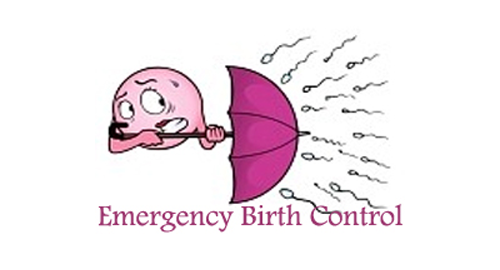- Clinic:
- 0733 945 717
- 0739 434 212

Setting your own health standards
June 14, 2023
If you notice a breast lump…
June 19, 2023Emergency contraception demystified

Emergency contraception is a safeguard against unwanted pregnancy. It can be used following unprotected sex, when a contraceptive method has failed, or when there has been coercive sex or rape.
Common references for emergency contraception include ‘morning after pill’ and ‘Plan B’.
The commonly available emergency contraceptive pill is taken as a single dose, but can also be split as two doses over a 12 hour interval. Its common trade name is Levonelle (but also available in other names), and should be taken within 3 days of unprotected sex for maximal effect.
It works by preventing ovulation (release of eggs), if this has not already occurred. But it may also interfere with sperm transport, fertilization and eventual implantation (attachment of a fertilized egg onto the womb). Most women can use the emergency pill safely, including ones breastfeeding and those who cannot usually use hormonal contraception. The pill is available in most pharmacies, and even without a prescription for women of legal age.
A newer pill called Ella is also now available, but only on prescription. Even though it works in a similar way as Levonelle, it appears to be more effective. It can be used up to 5 days after unprotected sex. The Copper intra-uterine device (commonly known as IUCD), can also be used as an emergency contraceptive. However it must be fitted into the womb by a Nurse or Doctor within 5 days after unprotected sex, or even up to 5 days after ovulation. The IUCD stops sperm from reaching an egg and fertilising it, and to some extent prevents implantation. It is the most effective method of emergency contraception and prevents at least 99.9% of pregnancies. Once the IUCD is fitted, women can choose it as an ongoing longterm method of contraception.
Emergency contraceptive pills have few side effects which resolve within 24 hours. If vomiting occurs within 2 hours of taking the pill, a further dose should be taken soonest possible. There may be a transient effect on the monthly period, which may be delayed or even come earlier. If the period delays for more than 2 weeks, a pregnancy test should be done. The emergency pill does not cause abortions or fetal abnormalities if used inadvertently when a woman is already pregnant. There is no longterm effect on the reproductive system or future fertility even on repeated use.
Emergency contraception must be taken as a backup, and not as a substitute for suitable longterm contraceptive methods. It prevents unwanted pregnancies safely, but some women will still get pregnant depending on the timing of use. But emergency contraception does not protect against sexually transmitted diseases, including HIV. Condoms do, if used at every sexual encounter with a partner of unknown sexual health status.
Take a fertility test today
